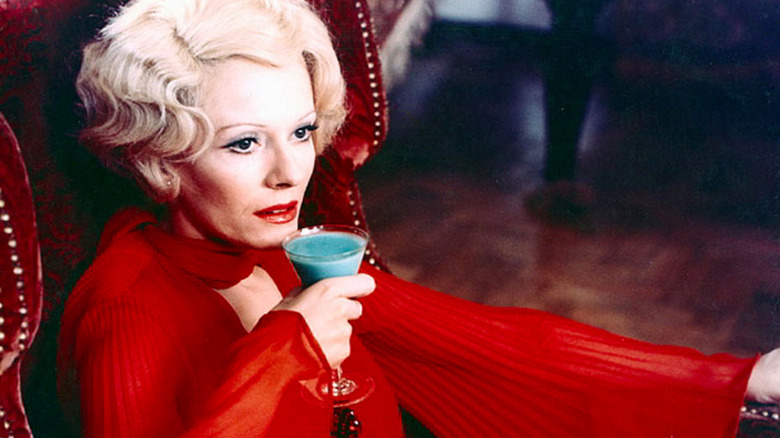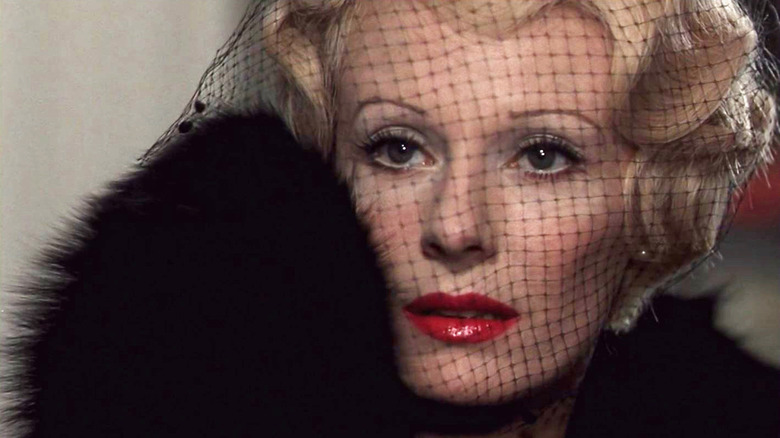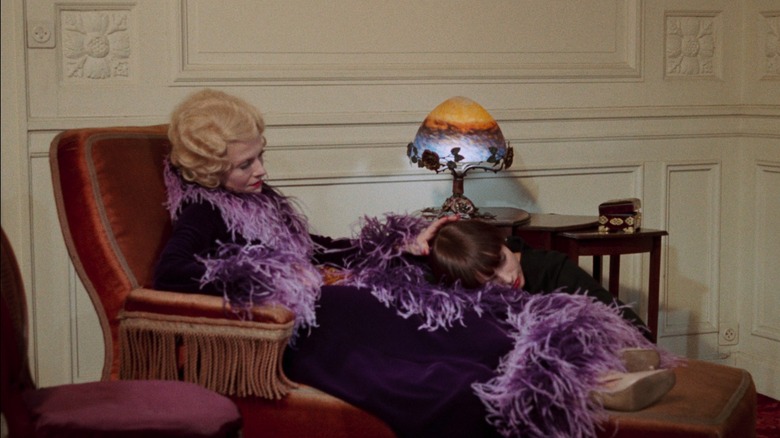Year Of The Vampire: Daughters Of Darkness And The Seduction Of Sadistic Sapphism
(Welcome to Year of the Vampire, a series examining the greatest, strangest, and sometimes overlooked vampire movies of all time in honor of "Nosferatu," which turns 100 this year.)
In the book "Vampires & Violets," filmmaker and scholar Andrea Weiss said, "The lesbian vampire is the most powerful representation of lesbianism to be found on the commercial movie screen and rather than abandon her for what she signifies, it may be possible to extricate her from her original function and reappropriate her power." There's an arguably problematic trope in cinema of the "predatory lesbian," who by definition is meant to serve as a warning of the increasingly threatening dangers of women who dare not to center men in their romantic excursions. In horror films, where monsters are typically understood as the villain, the lesbian vampire film can be read as an unfortunate perpetuation of the trope, as the mere existence of a lesbian vampire seducing women away from their cisgender-heterosexual world is "proof" of what the harmful stereotype has historically claimed.
While the read can absolutely be made, it's also a tired and frankly, super boring analysis of one of the most influential and important subgenres for horror fans of the sapphic community. For many sapphics, myself included, lesbian vampire films were some of the only ways to see lesbian relationships outside of pornography, Oscar-bait dramas, and if you're a millennial, the queer-baiting of t.A.T.u. or the iconic Madonna/Britney VMA kiss. Lesbian vampire films, on one hand, imply something dangerous, but in the case of a film like "Daughters of Darkness," highlighted the euphoric power of lesbianism in the other.
What it brought to the genre
"Daughters of Darkness" is inspired a bit more heavily by the real-life Hungarian serial killer Elizabeth Báthory than the lesbian vampire character Carmilla, who inspired just about every lesbian vampire film ever made, which further perpetuated the "predator" trope. As film historian and genuine queen of lesbian vampire cinema Annie Rose Malament has noted, this inspiration confirms the film in a world of predatory nature and historical reality.
Despite these supposed red flags, "Daughters of Darkness" is a seductive film that anyone would kill to be a part of. The costuming and decor drip with luxurious excess, a flamboyant showcase of decadence only possible by aligning oneself with sapphic sadism. Geoffrey O'Brien expertly described the juxtaposition in his work, "Horror For Pleasure."
At the film's core, however, is a deeply unpleasant evocation of a war of nerves between [Delphine] Seyrig's vampire and the bourgeois newlyweds into whose honeymoon she insinuates herself. Jaded age preys cunningly on narcissistic youth, and seductiveness and cruelty become indistinguishable as Seyrig forces the innocents to become aware of their own capacity for monstrous behavior. If Fassbinder had made a vampire movie it might have looked something like this.
Lesbianism is not a net-negative in "Daughters of Darkness." For as much as Delphine Seyrig's Countess Elizabeth Báthory is presented as a villain, she's presented equally as a glamorous source of power worthy of admiration. If monstrous tendencies exist within us all, there's something incredible about fully embracing it and exuding mystique in the process.
Thank you, vampire mommy
The LGBTQIA+ concept of "Daddies" crossed over into mainstream (see: straight) consciousness sometime in the 2010s, but society is still slow to accept the prevalence of "Mommies."
Delphine Seyrig's performance in "Daughters of Darkness" leans fully into vampire mommy territory. Allegedly styled after Marlene Dietrich, Seyrig is captivating from moment one. She's indulgent, she's seductive, she's powerful, she's stern, and yet she's quick to embrace and deeply care for whoever is the object of her affection. She takes intimate care of her secretary Ilona and when she becomes obsessed with seducing Danielle Ouimet's Valerie Chilton, it's partly due to recognizing that Valerie's husband sucks and she can see the "truth" within her. At one point she tells Valerie that Stefan was going to only ever treat her as subservient, whereas Elizabeth would allow her to thrive. Afterall, mommy does know best.
I'm not one to subscribe to the idea that all negative representation is "bad," because oftentimes a great sense of empowerment can be found by embracing the aspects of our personality that others would deem "wrong." This could easily be an allegory for queerness but it could also be a wonderful lesson about not subscribing to the status quo.
"One must never be afraid to look deep down into the darkest depths of oneself, where the light never reaches," Báthory says as Valerie inches closer and closer to temptation. There's something so very sexy about embracing your truth, especially if that truth is taboo and dangerous. Báthory as a vampire mommy provides the space for Valerie to come to terms with what has always been inside of her ... and everyone else like her.


